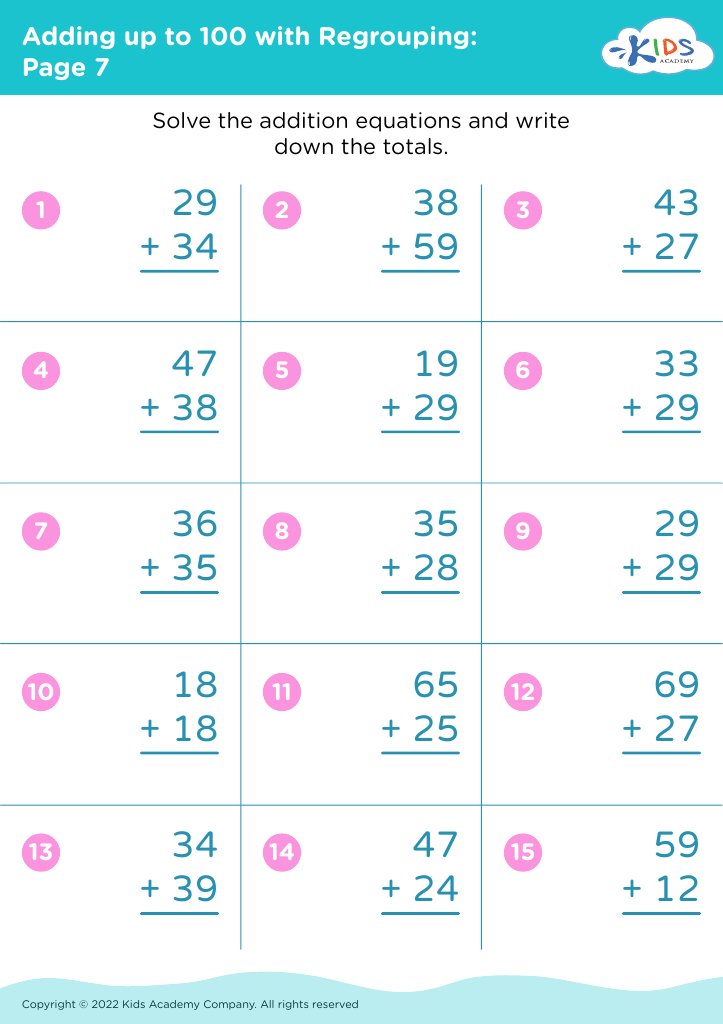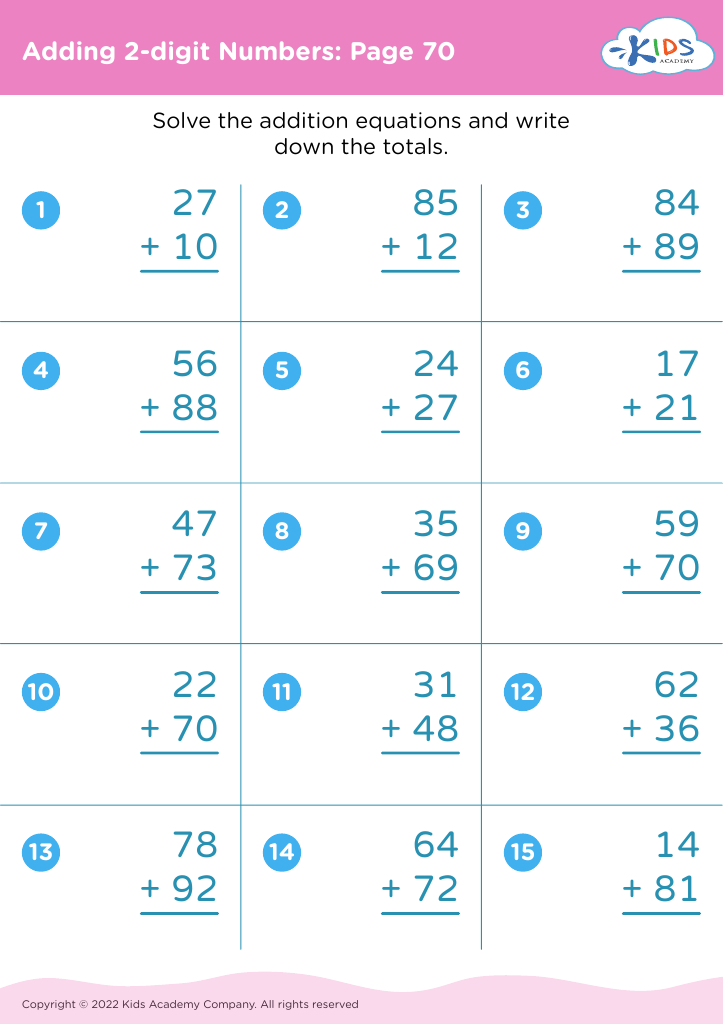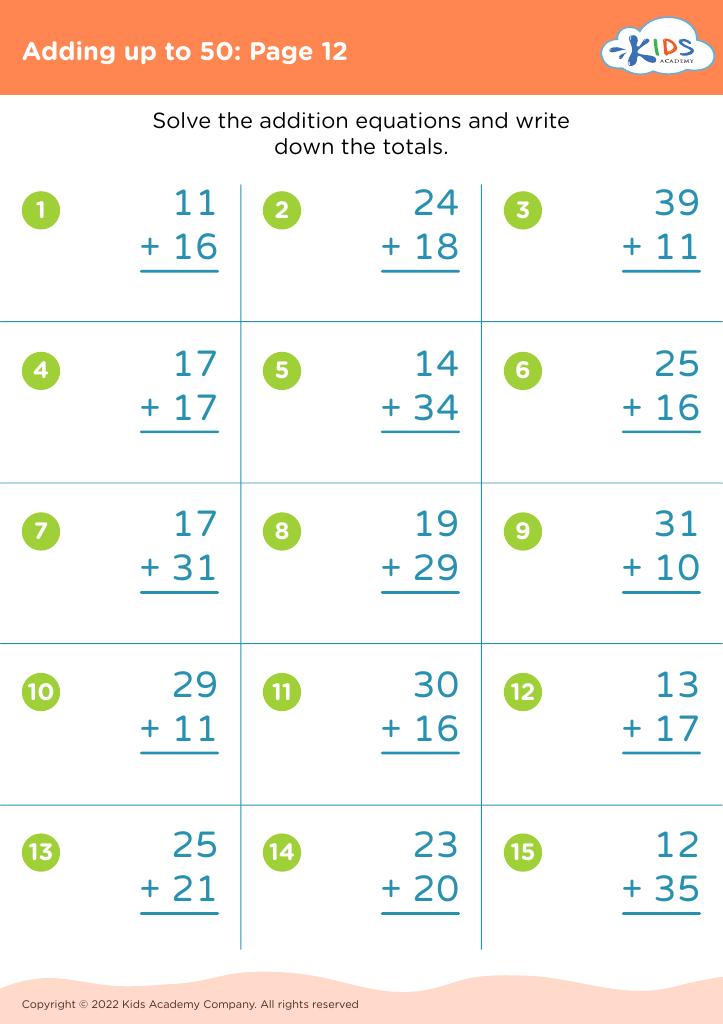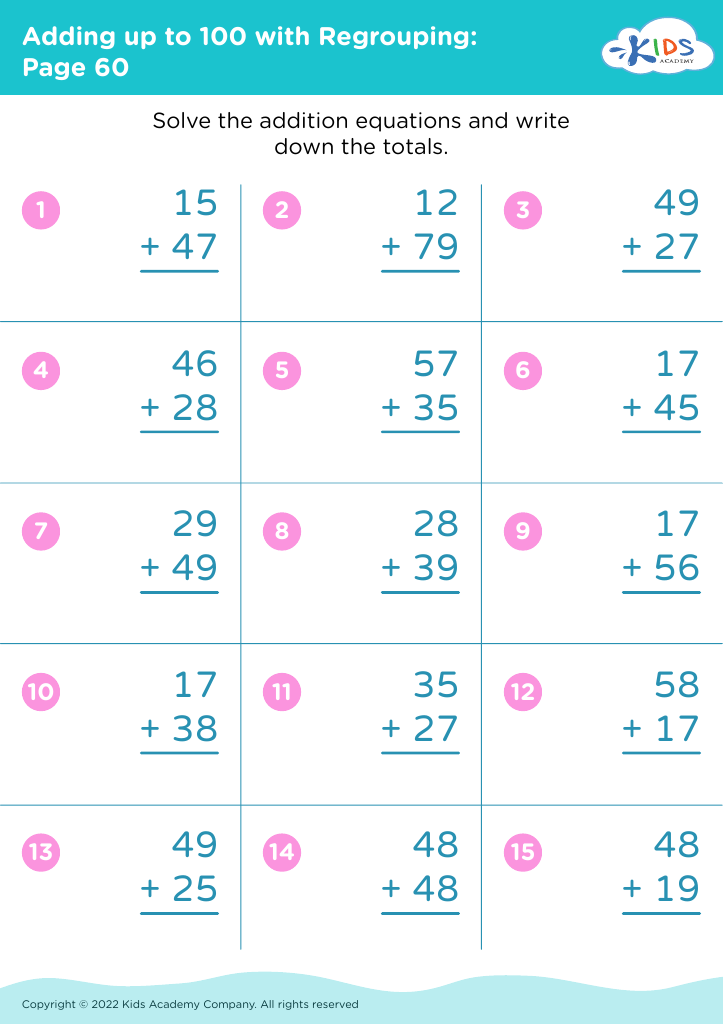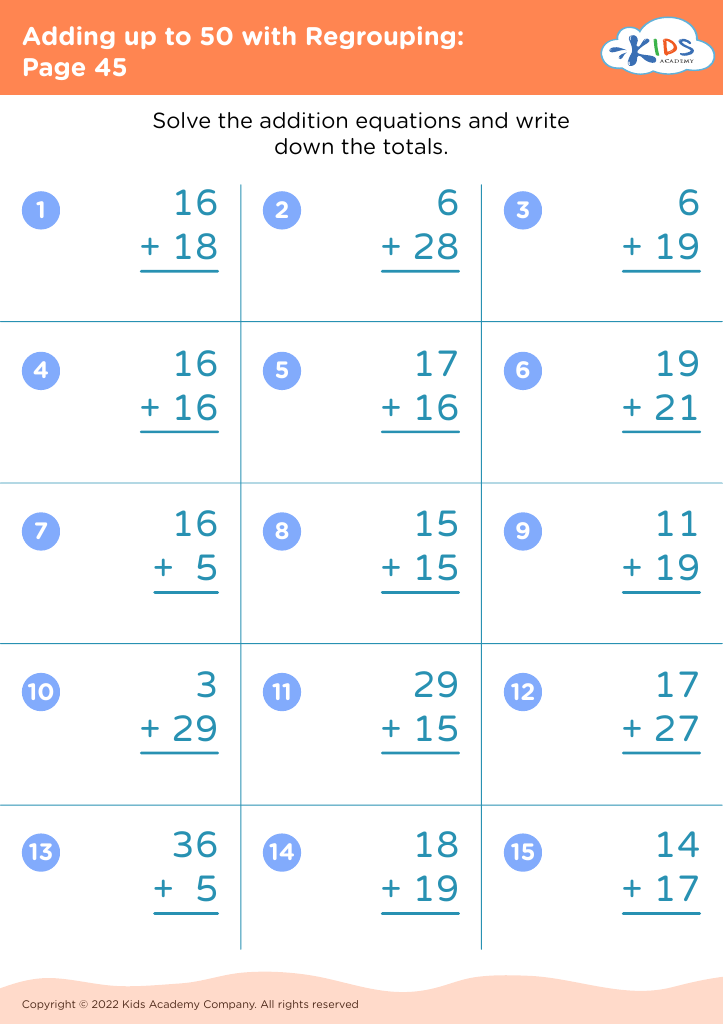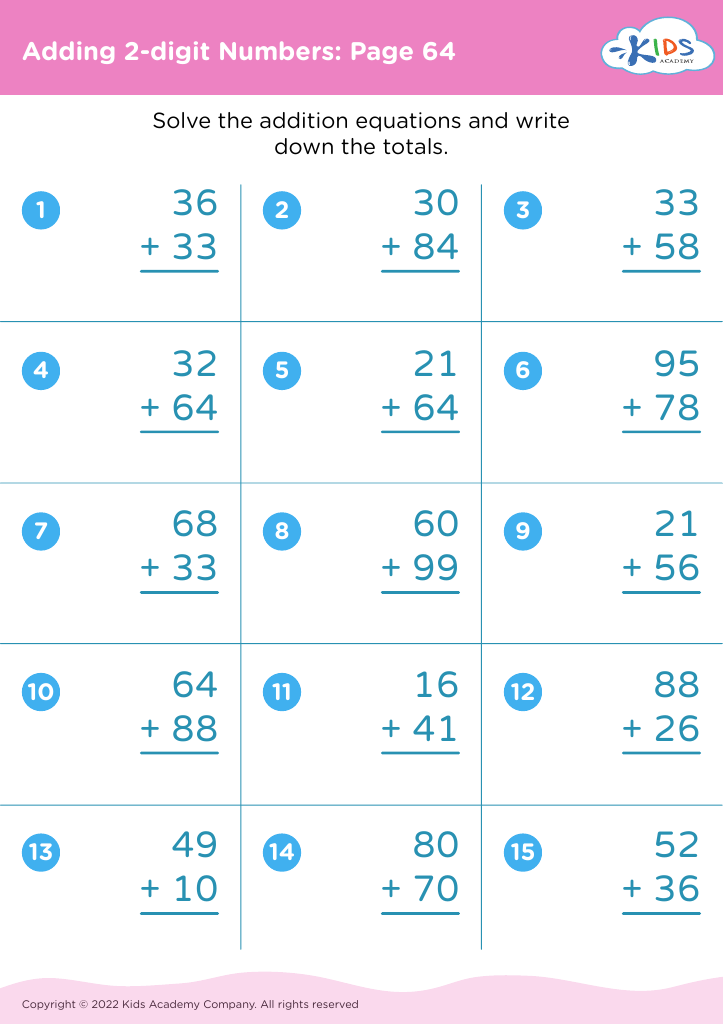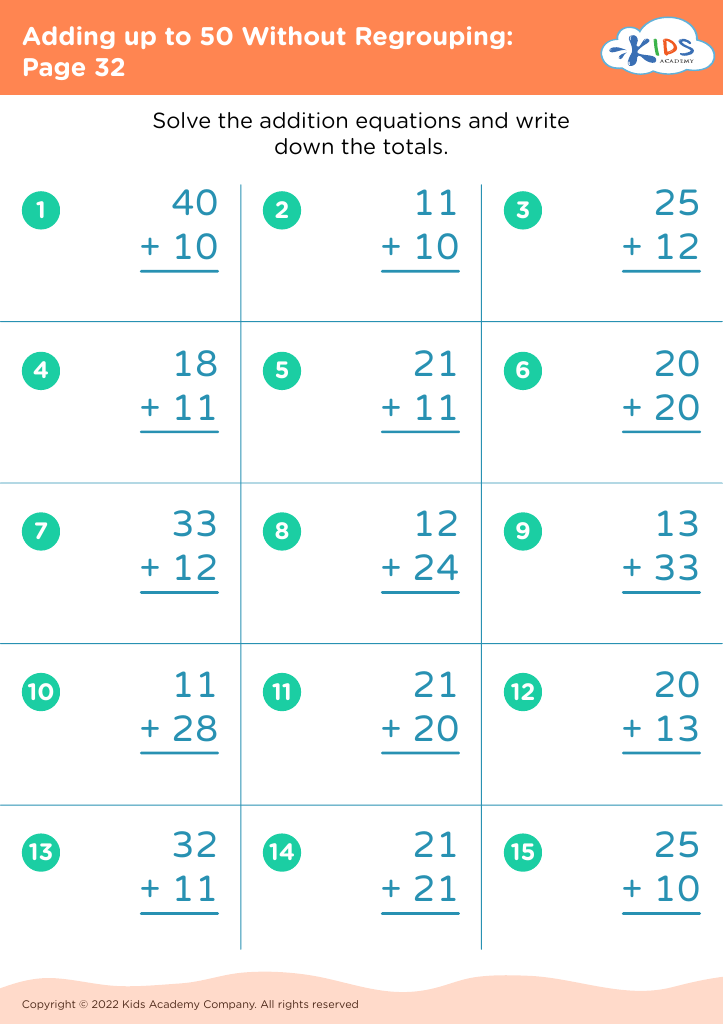Basic Addition Skills Math Worksheets for 8-Year-Olds
25 filtered results
-
From - To
Enhance your child's math journey with our engaging Basic Addition Skills worksheets designed specifically for 8-year-olds! These interactive, age-appropriate activities focus on reinforcing fundamental addition concepts through fun and relatable exercises. Our worksheets feature colorful illustrations and varied problems that keep learning enjoyable and effective. Perfect for home or classroom use, they help children practice one-digit and two-digit additions, building confidence and mastery in basic math skills. Encourage numeric fluency and spark excitement in learning with our easy-to-use resources, tailored to support young learners. Discover how our Basic Addition worksheets can make math a favorite subject for your child today!
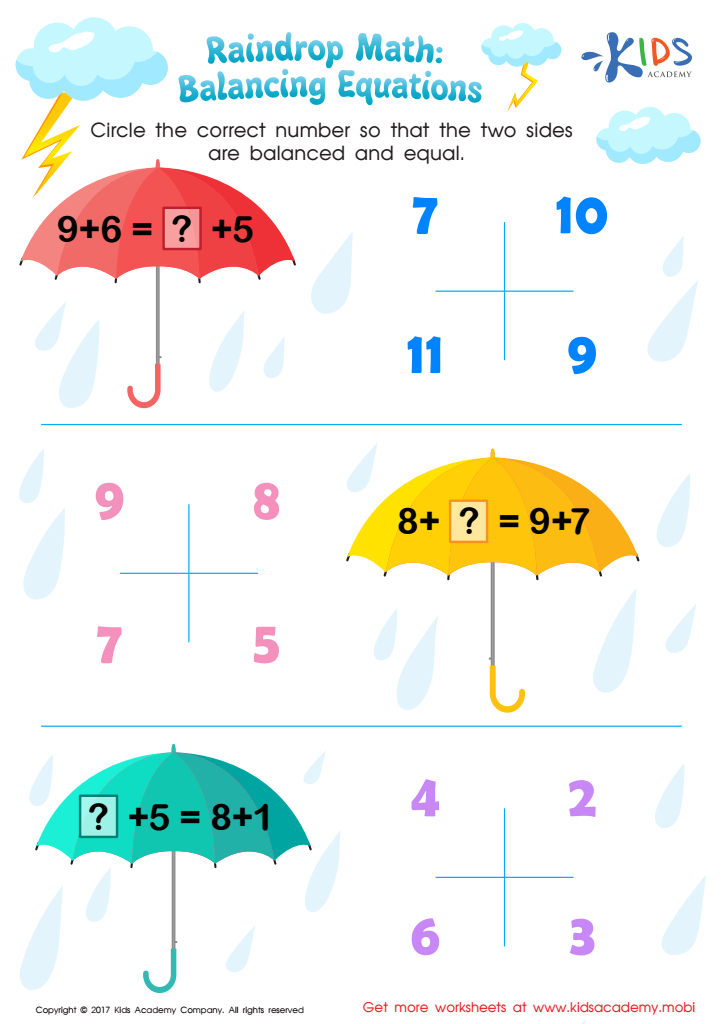

Raindrop Math Printable
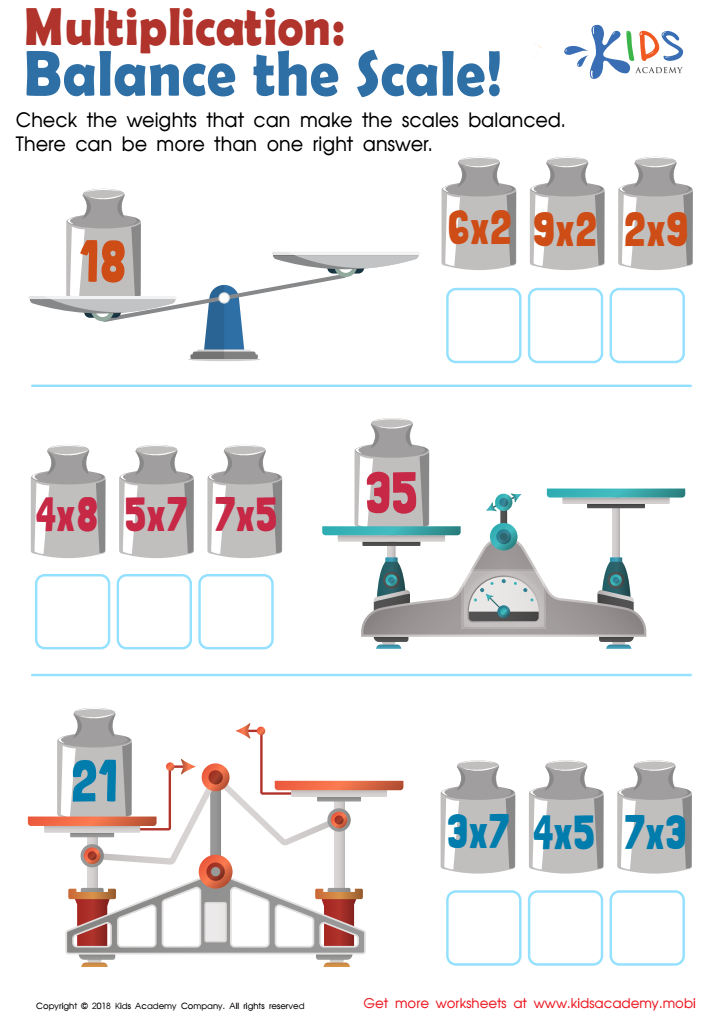

Balance the Scales Multiplication Worksheet
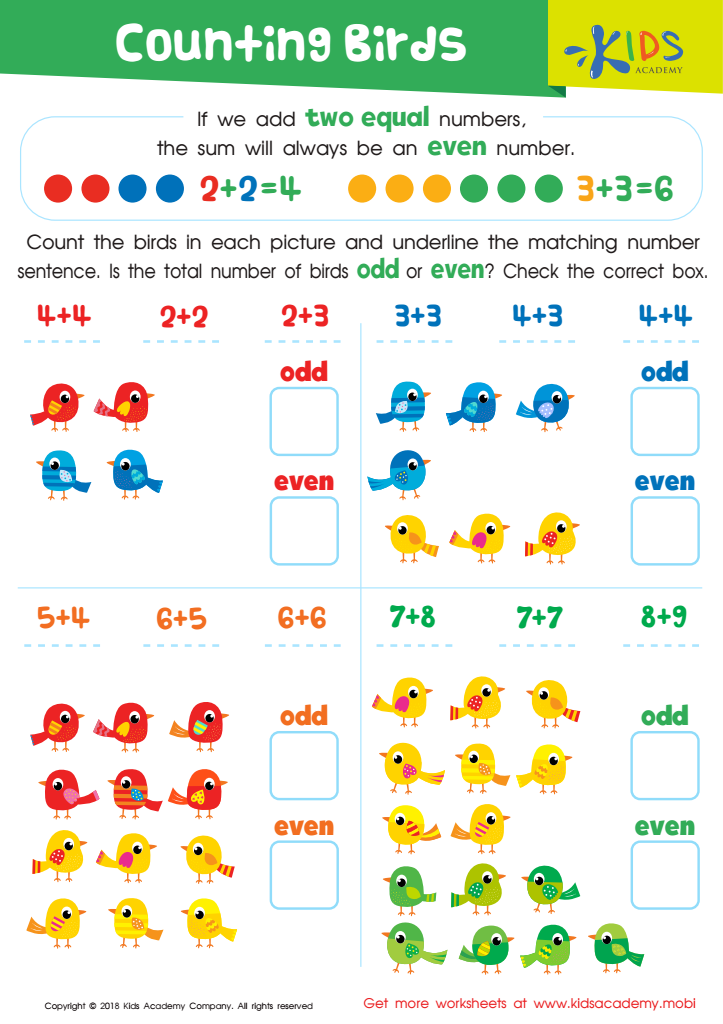

Counting Birds Worksheet
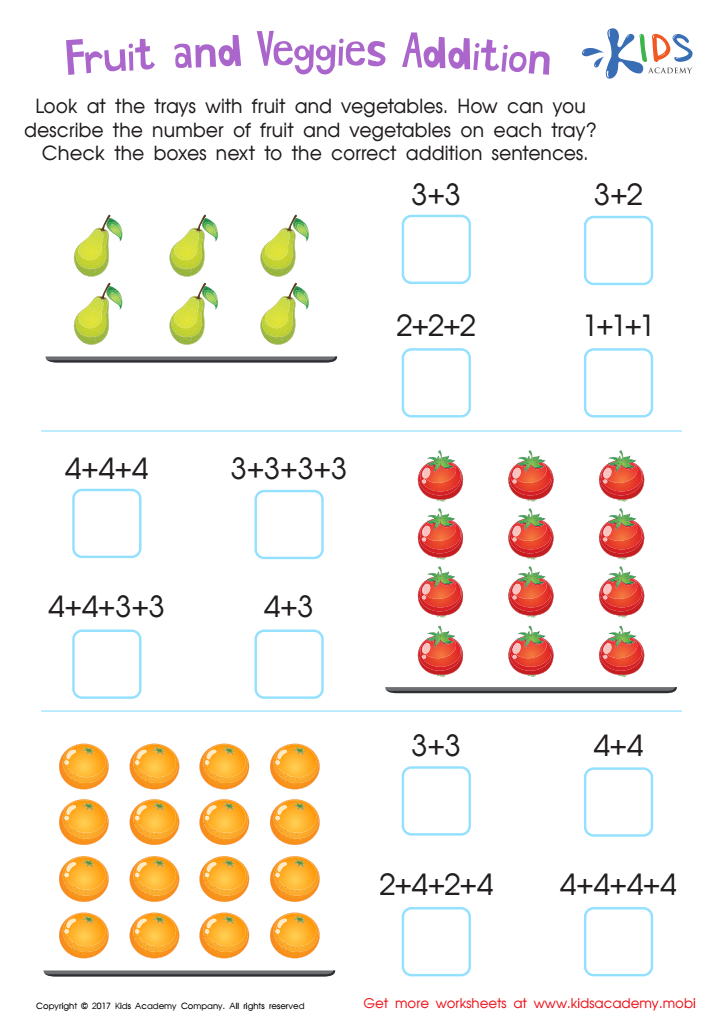

Fruit and Veggies Worksheet
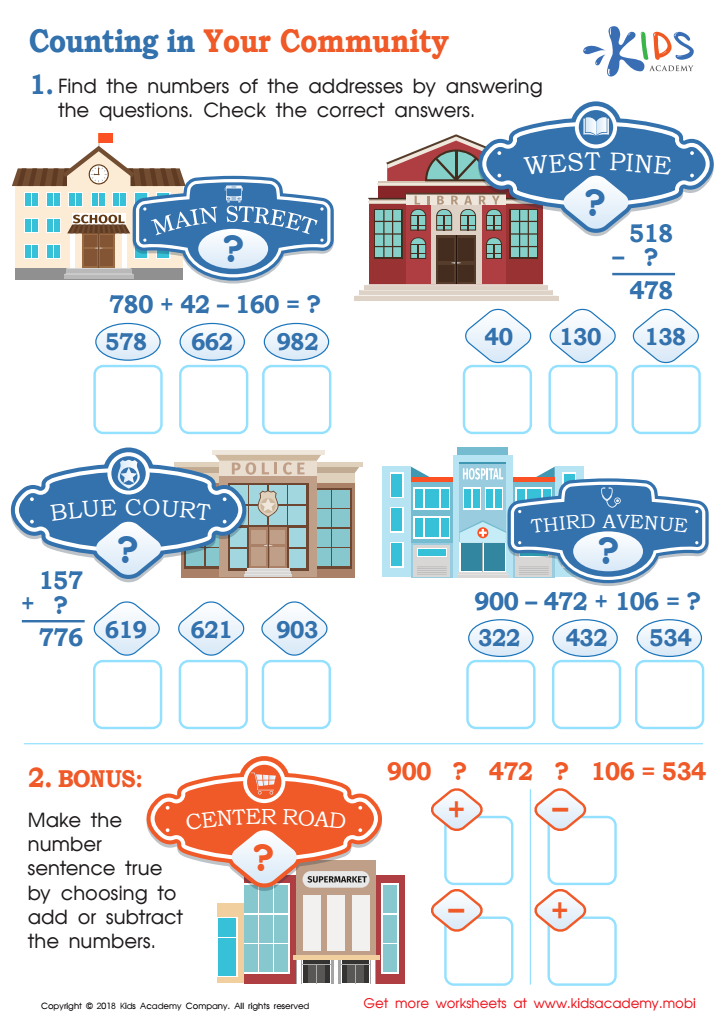

Counting in Your Community Worksheet


Party Arrays Worksheet
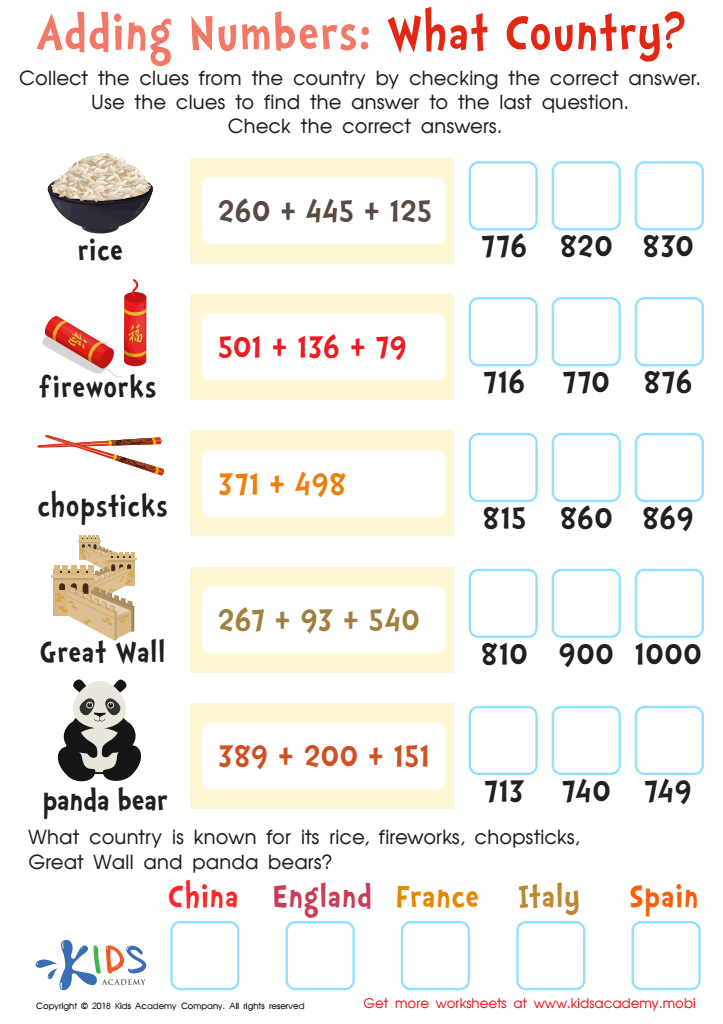

Adding Numbers: What Country Worksheet
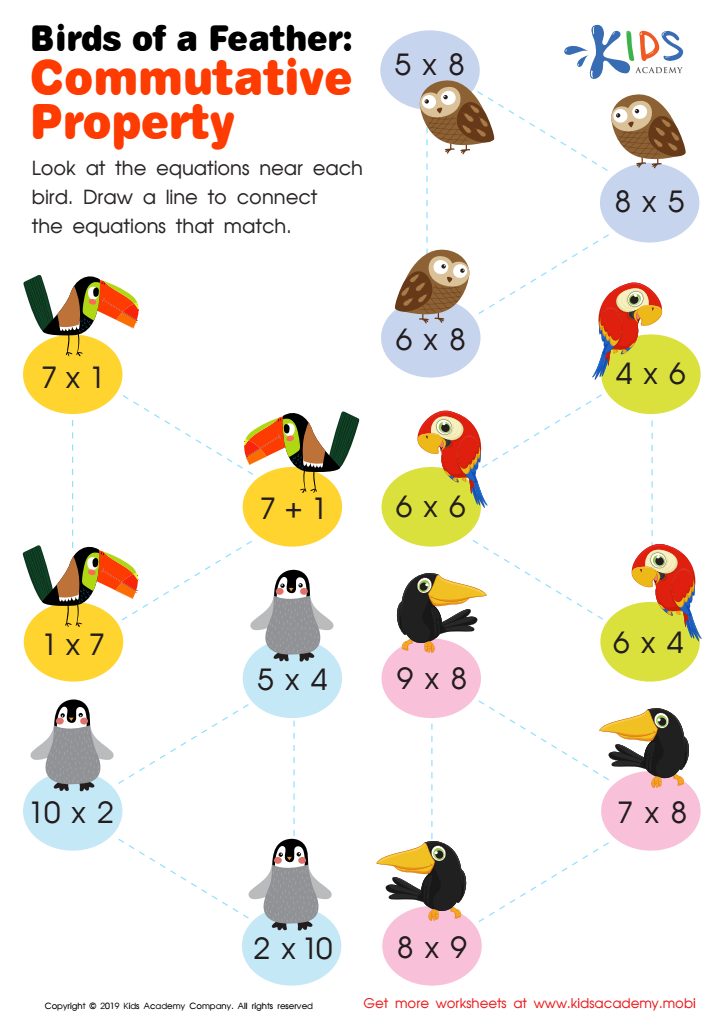

Birds of a Feather: Commutative Property Worksheet
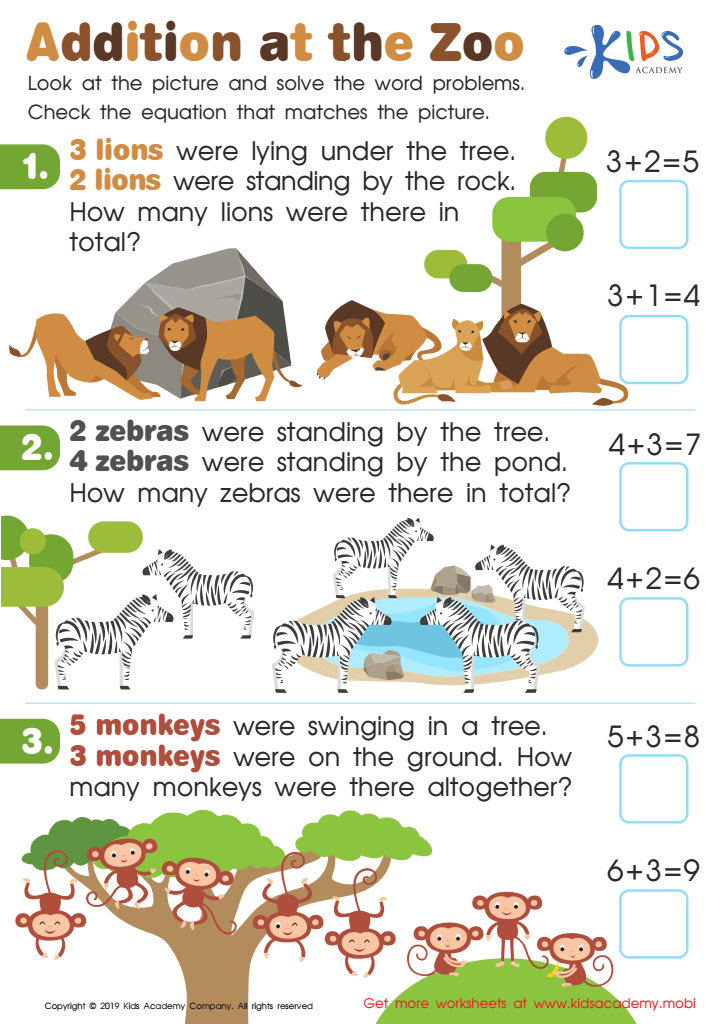

Addition at the Zoo Worksheet
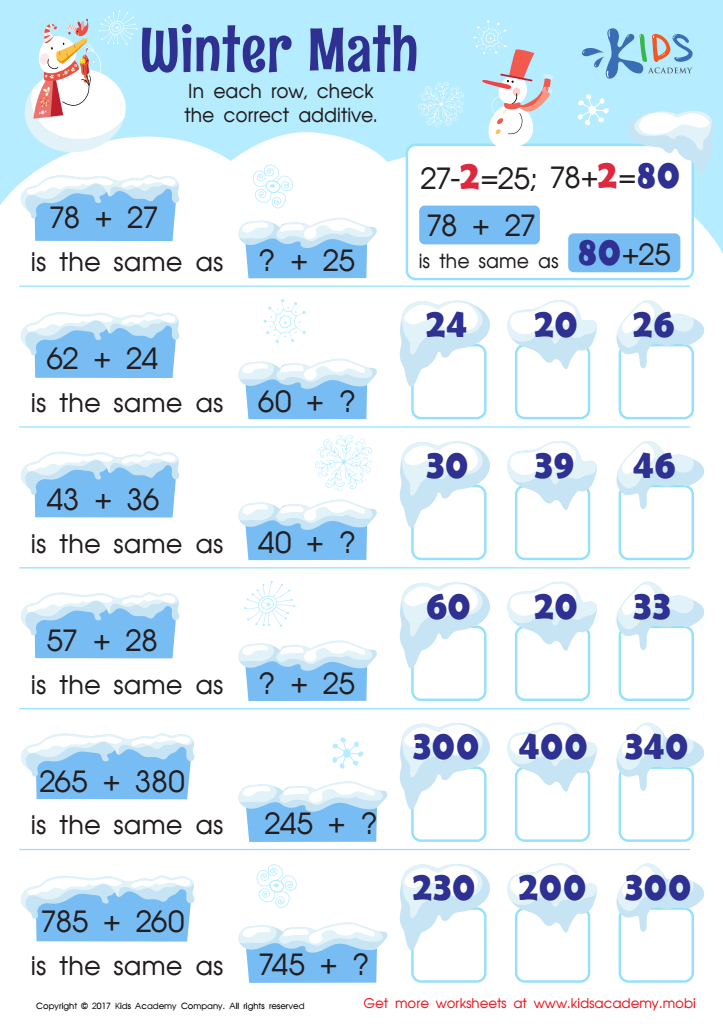

Free Addition Worksheet
Basic addition skills are foundational to a child's mathematical understanding and overall academic success. For 8-year-olds, mastering these skills opens the door to more complex mathematical concepts, such as subtraction, multiplication, and division. Strong addition abilities enhance a child's confidence, fostering a positive attitude towards math and learning in general.
Additionally, proficient addition skills are essential in daily life. From managing allowances to helping in grocery shopping, children who grasp addition can make practical decisions and solve real-world problems. Furthermore, foundational math skills contribute to developing critical thinking and reasoning abilities, which are important across all academic subjects.
Teachers and parents should take an active interest in ensuring children grasp basic addition, as these skills serve as building blocks for future learning. Engaging in fun and interactive activities that strengthen these skills can make math enjoyable and less intimidating. Regular practice through games or storytelling can reinforce addition in a memorable way.
Ultimately, cultivating basic addition skills equips children with the tools they need to succeed in more complex topics and promotes a lifelong appreciation for mathematics. Investing time and effort in this area yields significant benefits for both academic performance and everyday life.
 Assign to My Students
Assign to My Students
